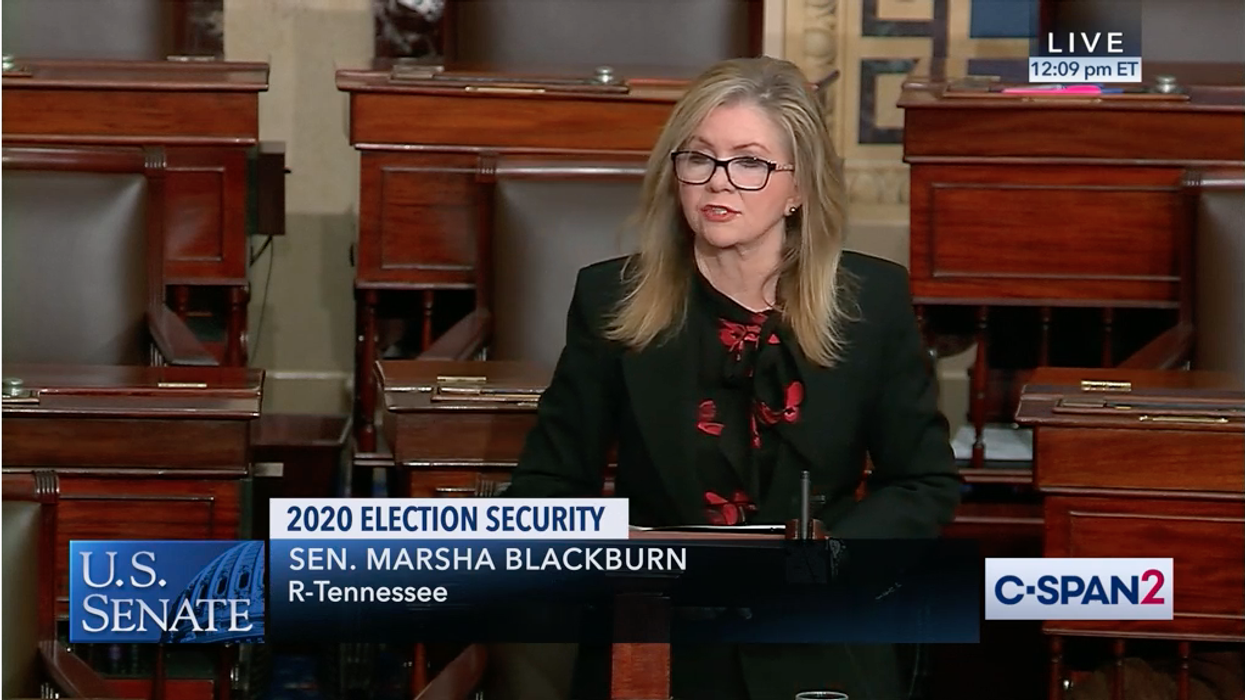Senate Republicans are continuing their total blockade of proposals for combatting foreign interference in American campaigns, signaling they won't be moved by a new Democratic effort to use President Trump's impeachment to shame them into action.
Democrats on Tuesday afternoon called up three of their top-priority election security bills they view as the least controversial, asking the Senate to pass them immediately on voice votes. Each time they were blocked by a single Republican, who under the rules could prevent further action.
The choreographed standoff underscores how the politically divided Congress is on course to do nothing more before Election Day to address perhaps the single the most pressing challenge to democracy: foreign adversaries armed with disinformation campaigns and hacking skills wresting control of a presidential contest away from the voters.
The Senate minority has moved three times in this Congress to call up collections of election security measures and force the GOP leadership to stand before the TV cameras and put a stop to consideration of each bill, many of which have already been endorsed in some form by the Democratic-majority House.
But those previous instances were all last fall, before impeachment. So this time the strategy was somewhat different: to publicly embarrass the GOP majority by declaring the bills had been made only more necessary by Trumps' acquittal last week — on charges he should be removed from office for abusing his power by withholding military aid and otherwise pressuring Ukraine to investigate one of his main Democratic re-election rivals, former Vice President Joe Biden.
"Because Senate Republicans chose to look the other way, the need for election security legislation is greater now than ever before," Minority Leader Chuck Schumer said. "We cannot trust this president to stand up for the integrity of our elections so Congress must stand up in his stead."
Marsha Blackburn of Tennessee, Minority Leader Mitch McConnell's designated agent for repelling efforts like this, revisited the GOP's policy rationale for opposing all election security policy bills: They start the federal government down a slippery slope toward federalizing elections that are conducted almost entirely by local and state governments.
The only exception McConnell has made was his agreement last year to support another wave of federal grants to the states for spending on election security ahead of the 2020 vote.
On Tuesday, Blackburn asserted the Democrats were renewing their campaign for additional legislation only to boost their campaign fundraising, and she said if her partisan opponents as truly interested in assuring the sanctity of elections they would be focused instead on opening a congressional inquiry into last week's chaotic Iowa caucuses.
"You would think after spending weeks in this chamber litigating the finer points of their disagreements with the president's foreign policy, our friends in the minority would be wary of picking another partisan fight but here we go again," Blackburn said in response to Schumer's discussion of the Senate trial.
These are the three Democratic measures that got blocked:
- Legislation by Mark Warner of Virginia — the top Democrat on the Intelligence Committee, which has conducted an exhaustive and bipartisan investigation of Russia's 2016 interference — that would require all future presidential campaigns to call the FBI if they are approached by a foreign power offering assistance.
- A companion measure by Richard Blumenthal of Connecticut that would compel presidential or congressional candidates to tell the FBI and the Federal Election Commission about any efforts by a foreigner to make any sort of campaign contribution.
- A bill by Ron Wyden of Oregon, dubbed the Safe Act, authorizing more federal money for modernizing voting systems and improving election security, while banning voting machines from being connected to the internet or being manufactured in foreign countries.




















Trump & Hegseth gave Mark Kelly a huge 2028 gift